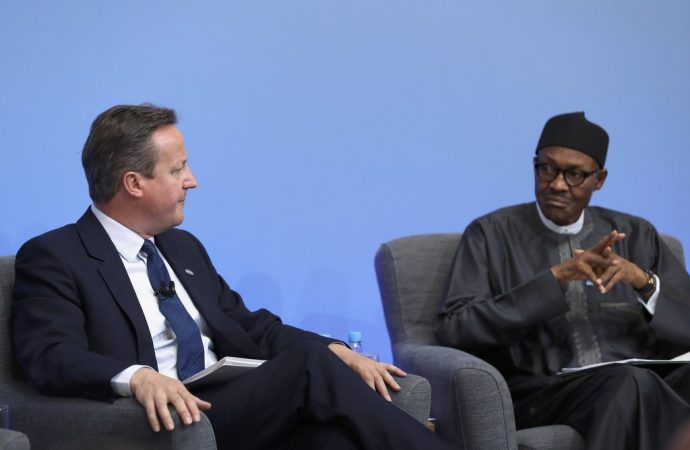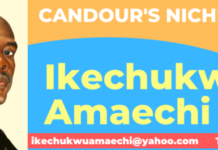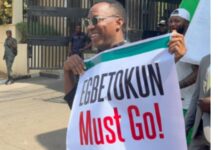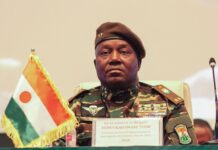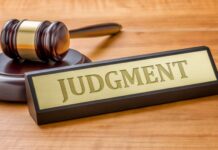Unarguably, President Muhammadu Buhari’s anti-corruption war is outstanding in the history of the country.
Analysts recall that when Buhari took over the leadership of the country on May 29, 2015, he promised to recover what he described as mind-boggling’’ sum of money stolen over decades.
They note that the president’s integrity and his reputation as an anti-corruption crusader convinced Nigerians to vote for him massively.
At his inauguration, Buhari insisted on fighting corruption as a key agenda of his administration.
We have seen in the last few years how huge resources were mismanaged, squandered and wasted.
The new All Progressives Congress government is embarking on a cleanup, introducing prudence and probity in public financing,’’ he said during the Oct.1, 2015 Independence Day broadcast.
In the run-up to the 2015 general elections, Buhari’s campaign speeches were incomplete without a mention of the disservice corruption had done to Nigeria and how he would turn things around.
We plan to put priority on tackling corruption which has become blatant and widespread,’’ he said at a rally.
At his last campaign speech before the presidential election, Buhari emphasised that his government would have zero tolerance for corruption.
I will set a personal example and run a government that truly serves the people rather than serve themselves and a privileged few.
Like I have repeatedly maintained, if Nigeria does not kill corruption, corruption will kill Nigeria,’’ he said.
Assessing his performance so far, observers say Buhari has matched words with actions in his anti-corruption pursuit, noting that he had called for return Nigeria’s stolen wealth during his foreign trips.
For instance, in his speech at the United Nations in September 2015, he called on the international community to urgently redouble its efforts to strengthen mechanisms for dismantling safe havens for proceeds of corruption.
Addressing world leaders at the 70th General Assembly of the UN, Buhari also urged his counterparts to do more to return stolen funds and assets to their countries of origin.
Similarly, at the World Energy Forum in the United Arab Emirates in January 2016, Nigeria signed an agreement with the country for the repatriation of ill-gotten wealth hidden by Nigerians in that country.
Beside this, in March 2016, Nigeria and Switzerland announced an agreement to return 321 million dollars (about 90 billion naira) public funds allegedly stolen by a Nigerian head of state.
The agreement was a legal requirement to ensure that the funds can indeed be returned to Nigeria and used to support social programmes to assist the people of Nigeria.
Analysts also opine that the high point of Buhari’s crusade against corruption was the recent London Anti-corruption Summit convened by British Prime Minister David Cameron.
Few days to the summit, Cameron was caught on camera describing Nigeria as being “fantastically corrupt.’’
They observe that Cameron’s comment has also attracted a statement from the Archbishop of Canterbury, Most Rev. Justin Welby, who said “but this particular president (Buhari) is actually not corrupt, he’s trying very hard.’’
Buhari had also pointed the finger back at Cameron, demanding that Britain should return assets kept in Britain by corrupt Nigerians, saying: “All I’ll demand is return of assets. What would I do with apology? I need something tangible.
Corruption is a hydra-headed monster and a cankerworm that undermines the fabric of all societies. It does not differentiate between developed and developing countries.
It constitutes a serious threat to good governance, rule of law, peace and security, as well as development programmes aimed at tackling poverty and economic backwardness.’’
He challenged governments to show the required political will to fight corruption, pointing out that lack of political will has been the missing link.
“Now in London, we can turn a new page by creating a multi-state and multi-stakeholder partnership to address this menace. The critical stakeholders here present can lead the charge in this regard.
“By the end of our summit, we should be able to agree on a rules-based architecture to combat corruption in all its forms and manifestations.
“A main component of this anti-corruption partnership is that governments must demonstrate unquestionable political will and commitment to the fight.
“For our part, Nigeria is committed to signing the Open Government Partnership initiatives alongside Prime Minister Cameron during the summit,’’ he said.
Observers insist that Buhari’s call for a global cooperation and multilateral approach to fighting corruption is already yielding results as many countries have pledged to join in the fight.
At the end of the summit, countries also pledged to set up public registers of company ownership in a collective effort to make it harder to launder the proceeds of corruption around the globe.
Britain, France, the Netherlands, Nigeria and Afghanistan pledged to inaugurate public registers of true company ownership while Australia, New Zealand, Jordan, Indonesia, Ireland and Georgia announced initial steps toward similar arrangements.
U.S. Secretary of State John Kerry said the U.S. had already announced measures to improve transparency on business ownership.
The countries taking part in the summit issued a 34-point communiqué outlining pledges to tackle issues ranging from doping and match-fixing in sports to tax evasion and bribery.
The summit also published separate statements from 40 countries; each one setting out commitments for which Cameron said civil society, media and others should hold governments to account.
Under the new rules announced by Cameron, foreign companies that own a property in Britain or want to buy one or to bid for a central government contract will have to join the register.
He said the aim is to expose those who hide behind obscure shell companies to own properties.
With this achievement, analysts observe that Buhari has emerged one of Africa’s vibrant advocates of a corruption-free society, as world leaders pay him a compliment for his honest credentials and his anti-corruption effort.
“I must commend President Buhari of Nigeria for his brave leadership in tackling corruption head-on and commitments to reform the legal system,” said Commonwealth Secretary-General Patricia Scotland.
UK Minister for International Development Nick Hurd also lauded Buhari’s campaign against corruption recently.
“UK fully supports priorities that the president has given to tackling corruption in Nigeria. We feel that corruption is absolutely the right priority and we support him in that,’’ he said.
Also, United Nations Office on Drugs and Crime (UNODC) Executive-Secretary Yury Fedotov, said: “the commitment of President Buhari to eradicate corruption is a very important asset for us in UNODC as the guardian of the UN Convention Against Corruption.’’
Analysts recall that in October 2015, the African Union Advisory Board on Corruption unanimously adopted Buhari as the continent’s preferred leader to lead a vigorous anti-corruption war to rid Africa of corruption.
According to them, the present administration’s efforts at fighting corruption have earned Nigeria international respect.
They, nonetheless, called on his administration to put in place more proactive measures to ensure effective prosecution of corruption cases.

